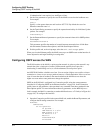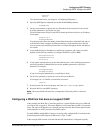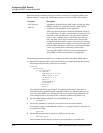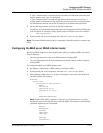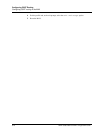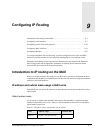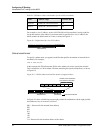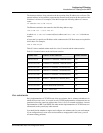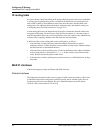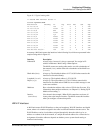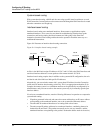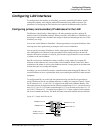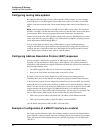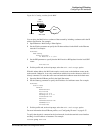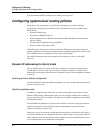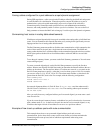
9-4 MAX 6000/3000 Network Configuration Guide
Configuring IP Routing
Introduction to IP routing on the MAX
IP routing table
At system startup, a MAX unit builds an IP routing table that contains static routes established
in various types of configuration profiles. In addition, the MAX unit uses routing protocols
such as RIP or OSPF to learn additional routes from other IP routers and adds them to the
routing table. (For additional information about configuring static and dynamic routing, see
“Configuring routes for WAN connections” on page 9-31.)
In each routing table entry, the Destination field specifies a destination network address that
can appear in IP packets, and the Gateway field specifies the address of a next-hop router to
reach that destination. Each entry also has a preference value and a metric value, which the unit
evaluates when comparing multiple routes that reach the same destination.
A MAX unit relies on the routing table to forward IP packets, as follows:
• If the unit finds a routing table entry whose Destination field matches a packet’s
destination address, it routes the packet to the specified next-hop router, whether through
the WAN interface or the Ethernet interface.
• If the unit does not find a matching entry, it looks for the Default route, which is identified
in the routing table by a destination of 0.0.0.0. If that route has a specified next-hop
router, the unit forwards the packet to that router.
• If the unit does not find a matching entry and does not have a valid Default route, it drops
the packet.
MAX IP interfaces
A MAX unit supports routing on Ethernet and WAN interfaces.
Ethernet interfaces
The routing table described in this section is typical of table created at startup by a MAX unit
in which the unit has been configured to enable IP routing, but for which no static routes or
Connection profiles have been defined. The unit’s Ethernet interface has the IP address
10.10.10.2 with a subnet mask of 255.255.0.0.



